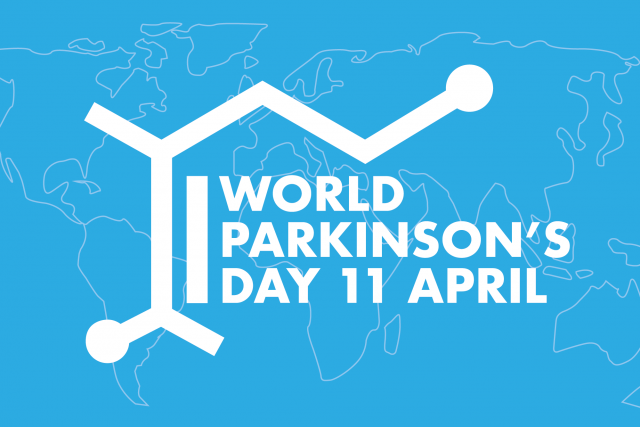By Gordon Wylie, Community and EDI Officer, MKDSA
World Parkinson’s Day takes place on 11 April every year to raise awareness of Parkinson’s.
Not enough people understand what it’s like to live with Parkinson’s. They don’t know it’s a serious condition. They don’t realise that treatments are limited and that there is no cure.
But if more people understand Parkinson’s, the more people can fundraise, can fight for fair benefits, can support their local communities, and, ultimately, can get us closer to that cure.
It’s time to start the conversation. It’s time to talk about Parkinson’s
There are many potential signs and symptoms of Parkinson’s and each person can experience them differently.
Not everyone will experience all of these symptoms.
The more common symptoms of Parkinson’s include:
· Tremor
· Rigidity (stiffness)
· Slowness of movement
· Mild memory and thinking problems
· Sleeping problems
· Pain
· Mental Health problems, including anxiety and depression
Early symptoms of Parkinson’s
Are you concerned that you, or someone you know, may have Parkinson’s? You or another person might have certain signs and symptoms of Parkinson’s, but it doesn’t mean that you or they have the condition. It’s always best to talk to your GP first and they can refer you to a specialist if your symptoms need further investigation.
Tremors, muscle stiffness and slowness of movement are all common early symptoms of Parkinson’s – but there are also other signs to be aware of.
1. Problems with your sleep
Sleep and night-time problems are common in Parkinson’s. People with Parkinson’s are more likely to experience insomnia due to certain symptoms which can disrupt sleep. These include tremor, stiffness, pain and restless leg syndrome. If sleep is affected, people may also feel tired and drowsy during the day.
2. Losing your sense of smell
Someone with Parkinson’s may notice that their sense of smell may not be as strong as it was or has disappeared. For example, someone may struggle to smell their favourite foods. Loss of smell can sometimes start years before other symptoms develop.
3. Small handwriting
Because of changes in the brain, people with Parkinson’s can find that their movements become smaller and less forceful than before. This can lead to someone’s handwriting becoming smaller than it previously was or gradually getting smaller as they write.
Find out more on our page on speech and communication problems.
4. Constipation and bladder problems
If you have Parkinson’s, you may be more likely to have problems with your bladder or bowels.
Signs of an overactive bladder, such as needing to use the toilet immediately without warning, or needing to go frequently throughout the night, are the most common bladder symptoms of people with Parkinson’s.
5. Depression
You may have depression if you are experiencing feelings of extreme sadness or a sense of emotional ’emptiness’ for a long time. It’s more than a temporary feeling of sadness, unhappiness or frustration.
In some cases, people with Parkinson’s may experience depression months before they notice any other symptoms.
Depression can also be a symptom of ‘non-motor fluctuations’ – in other words, when the non-motor symptoms of Parkinson’s can increase or fall depending on medication timing. This happens when the effects of levodopa ‘wear off’ before the next dose is due.
6. Anxiety
People with Parkinson’s may experience anxiety, including feelings of unease, such as worry or fear – particularly in the early stages of the condition. Any concerns that someone has about living with a long-term condition may cause anxiety.
Common symptoms of anxiety include: a sense of dread, constant worry or difficulty concentrating, sweating, pounding or racing heart (palpitations), feeling breathless, dizziness or trembling.
7. Fatigue
Feelings of fatigue – tiredness that doesn’t go away however much someone rests – affect up to half of people with Parkinson’s.
You may feel quite fit and able one day and then too fatigued to do much the following day. If you’re working, for example, you may feel much more exhausted in the evenings than you used to, and you may not want to do anything else.
Fatigue in Parkinson’s is thought to be caused by chemical changes in the brain. It may also be related to other symptoms or features of the condition, such as tremor, stiffness or feelings of stress.
Mental (cognitive) fatigue can be another symptom of Parkinson’s. Some people may find it hard to concentrate for a long time without a break
For more information on Parkinson’s go to www.parkinsons.org.uk



